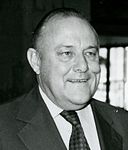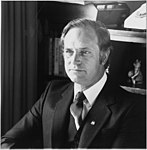New Zealand general election, 1978
|
|
|||||||||||||||||||||||||||||||||||||||||||||||||
|---|---|---|---|---|---|---|---|---|---|---|---|---|---|---|---|---|---|---|---|---|---|---|---|---|---|---|---|---|---|---|---|---|---|---|---|---|---|---|---|---|---|---|---|---|---|---|---|---|---|
|
|||||||||||||||||||||||||||||||||||||||||||||||||
|
|
|||||||||||||||||||||||||||||||||||||||||||||||||
|
All 92 seats of the New Zealand House of Representatives 47 seats were needed for a majority |
|||||||||||||||||||||||||||||||||||||||||||||||||
|
|||||||||||||||||||||||||||||||||||||||||||||||||
|
|||||||||||||||||||||||||||||||||||||||||||||||||
The 1978 New Zealand general election was a nationwide vote to elect the 39th New Zealand Parliament. It saw the governing National Party, led by Robert Muldoon, retain office, but the opposition Labour Party managed to win the largest share of the vote. Reorganisation of the enrolment system caused major problems with the electoral rolls, which left a legacy of unreliable information about voting levels in this election.
The National Party had won a resounding victory in the 1975 elections, taking fifty-five of the eighty-seven seats and ousting the Labour Party from government. Labour had been led by Bill Rowling, who had assumed the post of Prime Minister on the death in office of the popular Norman Kirk. Labour won the remaining thirty-two seats in that election, with no other parties gaining entry to Parliament.
Labour's Rowling had been criticised by many for inadequately countering Muldoon's confrontational style, and was widely perceived as "weak". Following Labour's defeat, there had been speculation about replacing Rowling as leader of the party, but Rowling managed to retain his position. Gradually, as some people wearied of Muldoon's style, Rowling's more reserved manner was held up as an asset rather than a weakness, and Labour began to gain a certain amount of traction again. Economic troubles hurt the government, and its reputation had fallen. Muldoon remained a powerful opponent, however, and was regarded as a strong campaigner.
Not long before the 1978 election, a by-election in Rangitikei caused considerable comment when it introduced a third party to Parliament: Bruce Beetham, leader of the Social Credit Party. Although other parties dismissed Social Credit's success as a fluke, Beetham predicted a great future for the party.
...
Wikipedia



